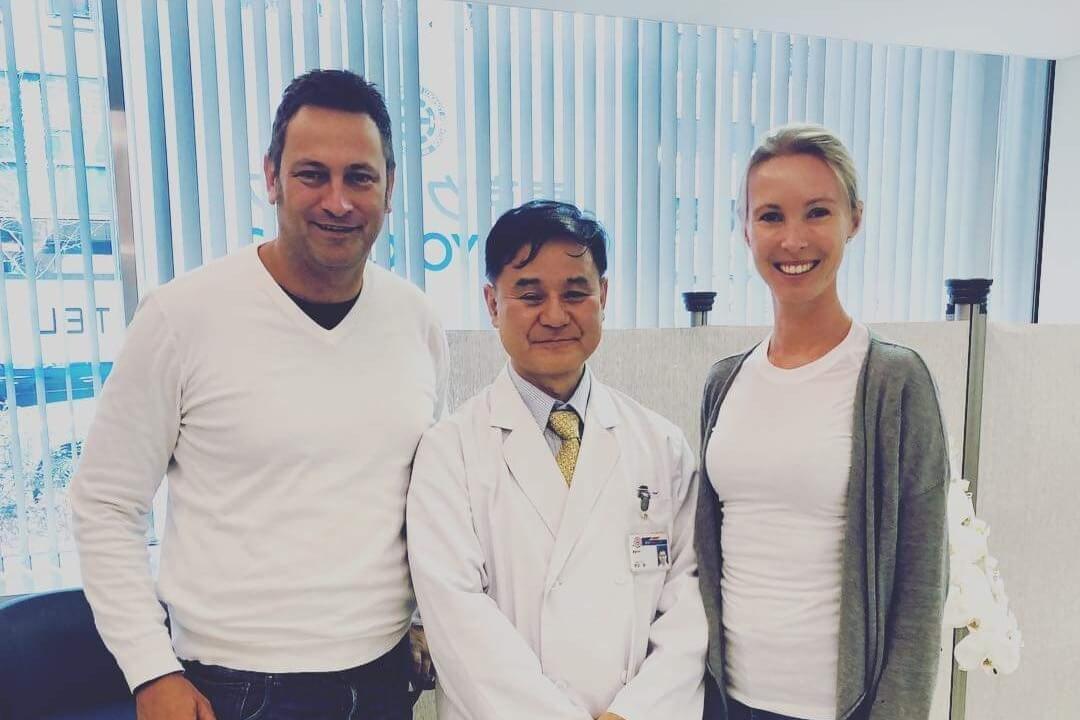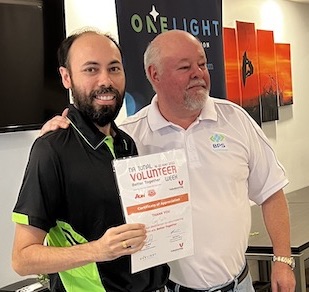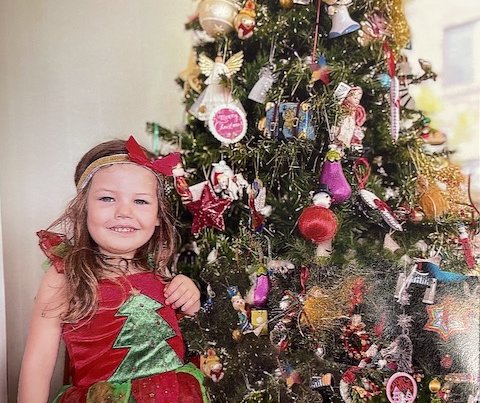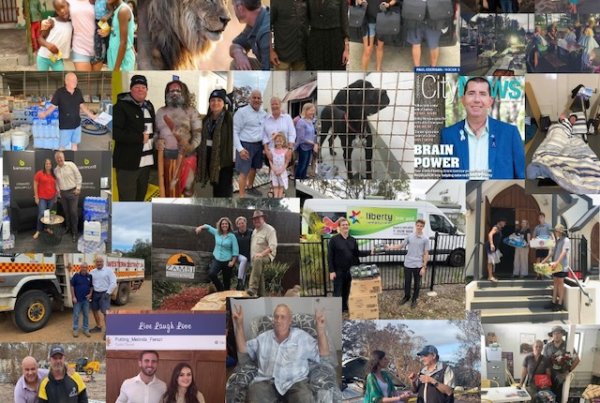Impact of a life-threatening disease on patients and loved ones
We believe that a holistic approach to research, treatments and care are required. One Light Charity raises funds and supports patients and family in the following areas:
- Innovative research
- Care facilities
- Nurse care and support
- Family and survivor support
- Raising awareness
- Medical costs
1 in 2 Australian men and women will be diagnosed with cancer by the age of 85. We help to raise funds and make Grants across every area of cancer, from research to prevention and support.
At any given time around 3,700 Queensland families are living with, loving, and supporting a child or teenager with a life-limiting condition. The emotional, physical and financial struggle for these families can be immense.
Our focus is on patient care and support
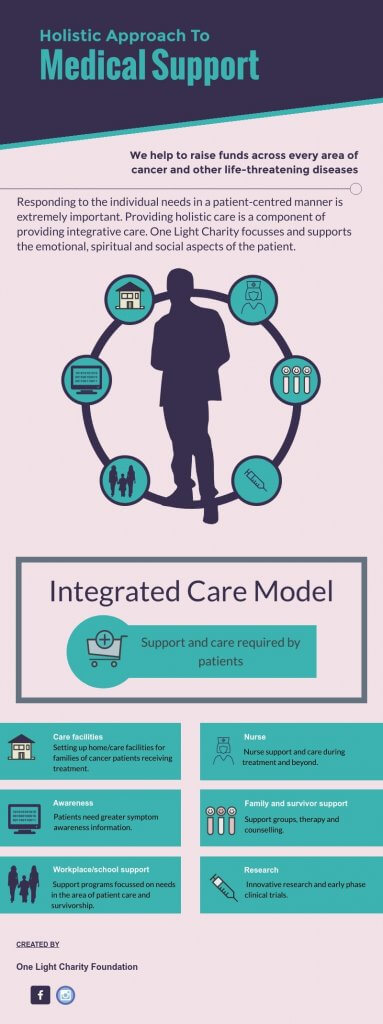
List of most aggressive cancers
- Lung and bronchus cancer
Once again, lung and bronchial cancer are projected to be the deadliest types this year. Cigarette smoking is a major risk factor for developing lung cancer
- Colorectal cancer
Age is a huge risk factor for colorectal cancer — more than 90% of cases occur among those over the age of 50. If you’ve had inflammatory bowel disease, Crohn’s disease, or have a family history of colon cancer, then you’re also at an increased risk
- Pancreatic cancer symptoms
Most cancers in the pancreas start in the glands responsible for producing the digestive enzymes that help break down proteins, fats, and starches.
- Breast cancer
Perhaps one of the most well-known types, breast cancer results from cell mutation that leads to a malignant tumour,
- Liver and intrahepatic bile duct cancer
If ever there were a reason to cut down on your alcohol consumption, it’s seeing liver cancer appear as No. 5 on this list. The liver does one of the most important jobs in the body — it processes what you eat and drink while also removing toxins from the blood.
- Prostate cancer
Prostate cancer typically has no symptoms in its early stages, making it all the more deadly. Symptoms that do occur usually mimic those associated with an enlarged prostate, so some men justify not visiting a doctor because they don’t think it’s serious.
- Leukaemia
Leukaemia often goes undetected, which can make this disease even deadlier. Cold and flu-like symptoms are common, but certain types of leukaemia can live inside the body for years without showing any symptoms.
- Non-Hodgkin lymphoma
Non-Hodgkin lymphoma is generally a catch-all phrase for a variety of blood cancers that develop in the lymph nodes or lymphatic tissue.
- Bladder cancer
If you’re a smoker, know the ACS reports you’re three times more likely to develop bladder cancer than those who steer clear of cigarettes. People who are prone to bladder infections are also at a higher risk than the general public. And those with a family history should be acutely aware of any symptoms they notice.
- Brain and nervous system cancer
Brain cancer statistics:
- Brain cancer survival rates have barely increased in the last 30 years.
- Brain cancer kills more children than any other disease
- Kills more people under 40 in Australia than any other cancer.
- Only 2 out of 10 people diagnosed with brain cancer will survive
Many brain cancer survivors will be burdened for the rest of their lives with out-of-pocket financial costs.
Impact on family, friends and children
Cancer may impact on one’s relationship as well. A family member’s severe illness stretches the emotional resources of the rest of the immediate and extended family. Both the person with cancer and loved ones may need to protect one another from their own emotions. But the more openly they can discuss tough issues, the greater the scope for family members to support one another. Family members may manage to work things out among themselves or they may opt for family therapy or some other third party help.
Cancer is also an extreme situation for a cancer patient’s loved ones. Family members and friends find that they have to manage their relationship with cancer and life’s most fundamental questions.
Relationships
Serious illness affects couple relationships, family life and friendships. Sometimes the illness brings people closer, but it could also create distance. Established roles and daily routines may alter for a while.
The impact of cancer on one’s family depends on which family member is ill and the age of the children. Responsibility for finances, looking after the children and many other factors have to be reassessed. Cancer may impact on one’s relationship as well.
Many people being treated for cancer experience severe fatigue, which often tops lists of the most common side effects of both chemotherapy and radiation. If the patient is open for it, family and friends can offer practical support.
How to tell children about cancer?
Parents with cancer have to decide at what point they will talk about their illness to their children. It is usually easier to talk to a child once one’s own initial shock has subsided. But it is good to tell a child about your illness at an early stage. This gives the child more time to adjust to the situation gradually.
It is important to talk to a child about cancer objectively and honestly and bearing in mind the child’s age and level of development. You can’t keep cancer a secret, as children will anyway sense the change of atmosphere.
Children of different ages react differently to a family member having cancer. Their initial response may vacillate between crying and indifference, but they will, in any case, feel worried and frightened. This may be evident from eating disorders, sleeplessness or problems at school.
Children should feel safe
Children need support and togetherness, and should not be kept at a distance from the person who is ill. The most important thing is to show that they are taken care of regardless of the situation. They should be reassured that their parent’s or sibling’s illness is not their fault. It is also important to ensure that children or young people get sufficient support and scope to unburden themselves emotionally.
It is good if children also have a safe adult who they can rely on. Inform other adults, such as daycare staff or a teacher at school, who have dealings with the child about you or a loved one’s illness. With teenagers, one should ask their permission before telling anyone else about the illness.
For an adolescent, a loved one’s illness can be especially difficult, as the family crisis coincides with big changes in their development. They are preoccupied with thoughts about their sexuality, values, questions about the hereditaries of the disease, death, and so on. A young person’s reactions to a parent’s illness may be extreme, involving rage, feeling ashamed of the parent or by closing up. Despite this, with a young person, it is important to talk about the illness openly and honestly.
If a child becomes ill
For parents, having a child diagnosed with cancer is a devastating experience. It often prompts feelings of guilt, even though there is nothing they could have done to prevent the illness. It is important to try to help the child live as normal and varied life as possible despite the illness.
Friends
Friends give support during illness. They can help you to stay positive and strong. The one who has fallen ill can talk honestly to his or her friends.
Some people who have cancer find that their circle of friends changes during the illness. This may be for a variety of reasons. Some friends may stop being in touch because they don’t know what they should say to someone with cancer and are unable to face them. The person who is ill may withdraw socially. Then again, it may be due to anxiety but also physical factors, if the illness and its treatment interfere with your normal life. On the other hand, having a severe illness can alter your values and view of life, friendships may also alter.
Surround yourself with positive energy
You’re probably already thinking of those friends and family members who bring a smile to your face simply by being present. When you’re feeling the weight of the world on your shoulders, they walk in like a ray of sunshine and almost effortlessly lighten your load. In addition to the positive people in your life, surrounding yourself with positive energy such as inspirational books and uplifting music can add an extra touch of buoyancy to keep you afloat as you face the tsunami known as a cancer treatment.
The more we learn and research life-threatening diseases, the more likely we are to see new treatment options emerge. “Mankind is turning cancer from what we’ve known it to be — the way we’ve related to it in the 20th century as an impossible, obscure disease — into a ‘normalized’ disease” Scientists may have discovered the key to defeating cancer.
Are You Ready To Change Lives?
Browse Through Our Fundraising Campaigns
Changing lives one Campaign at a time.
One Light Charity Offers A Variety Of Impact Gifting
We made it so easy for you to support your favourite Cause.
- Donate cash, products, trade and crypto.
- At the checkout page choose your Cause.
- We will apply all of your funds to the Cause chosen by you.
- Follow us, we will update regular posts about the work that we are doing in our beautiful Australia.



